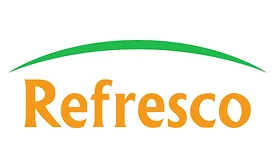Home » Keywords: » beverage facility
Items Tagged with 'beverage facility'
ARTICLES
Sale leaseback can help beverage manufacturers raise capital while navigating tariffs
Architectural-led designs help beverage warehouses build for the future
Flexibility for future expansion key in planning new facility builds
May 23, 2024
Anheuser-Busch announces $22.5M investment in Houston brewery
Investment includes an upgrade to cooling system, improving workplace safety
August 31, 2023
New beverage facility builds trend toward continued efficiency
Architectural-led designs help beverage warehouses build for the future
May 25, 2022
Refresco to acquire 3 Coca-Cola production facilities
Transaction subject to regulatory approval
August 4, 2021
Beverage businesses build, expand facilities for expansion
Building for the future
June 1, 2021
Komax releases indirect steam cooking for beverage industries
Process enables uniform heating for liquids and slurries
February 4, 2021
Komax releases indirect steam cooking for beverage industries
Process enables uniform heating for liquids and slurries
January 15, 2021
Edgewater Products unveils anti-microbial copper laminate film
Laminate film reduces risk of infection on high touch areas
October 16, 2020
National Chemicals unveils non-caustic beverage system cleaner, Vantage Synergy
Vantage Synergy cuts cleaning time in half
October 12, 2020
Elevate your expertise in the beverage marketplace with unparalleled insights and connections.
Join thousands of beverage professionals today. Shouldn’t you know what they know?
JOIN NOW!Copyright ©2026. All Rights Reserved BNP Media.
Design, CMS, Hosting & Web Development :: ePublishing












